From the Editor: Basking in Moonlight
The Academy should do the right thing and reward the excellence of Moonlight
By Randy Shulman on February 23, 2017 @RandyShulman

A long time ago, in a galaxy far, far away, I labored as a film critic.
Labored is probably too strong a word — I actually enjoyed my years writing about film. It’s what got me into journalism and, tangentially, led me to start Metro Weekly. And while I don’t miss having to attend roughly 300 films a year, I’m no less passionate about the medium.
Over the years, the magazine has featured expansive coverage of movies in general, with specialized focus in LGBTQ cinema. One of our proudest accomplishments has been our exhaustive coverage of movies at the Reel Affirmations film festival, which we started covering in 1994. As a result, we have assembled well over 1,000 reviews of all types of LGBTQ films — from features to documentaries to musicals to the shortest of shorts. Much of the repository is still on our site, starting with the 2003 festival. And glancing over those lists of films reminds you of how far LGBTQ cinema has come in 23 years.
In 2009, Sean Bugg, my co-editor at the time, and I decided to celebrate the Oscars with a cover story entitled “25 Gay Films Everyone Should See.” It took us a week of arguing to sort that first list (I was adamant that The Birdcage was a redundant addition, given we had La Cage aux Folles on it).
We followed in 2011 with “25 Gay Films Everyone Should See: The Sequel” (still adamant about no Birdcage) and again in 2013 with “25 Gay Films Everyone Should See 3D” (no Birdcage!). I actually had a master plan to do “The Final Chapter” and “A New Beginning,” but we never got around to it. Instead, we took side journeys. We looked at 13 camp films in 2012, and in 2015, with the help of the DC Shorts Film Festival, we focused on — what else? — LGBTQ shorts.
For this year, particularly with the rise of Moonlight, it became clear we celebrate African-American essentials of the LGBTQ cinemagoing experience. Working with contributor André Hereford, himself a former film industry professional, a strong list of 15 movies was agreed on, a list we all felt encompassed a perfect range of everything from drama to comedy to camp. The collection provides a phenomenal overview of cinematic evolution and achievement within a black LGBTQ framework.
Nowhere is this more evident than in this year’s Oscar nominee Moonlight. Yes, it’s a gay film. Yes, it’s an African-American film. But it’s also a phenomenal film without those classifications. It’s a rare achievement in filmmaking; director Barry Jenkins and his astonishing cast achieve an emotional poetry that eludes even the most accomplished veteran filmmakers.
With a narrative that deals with gay coming of age issues while living in a rough area of Miami in the ’80s, the movie defies both conventions and expectations as it follows the circumstances and quiet yet significant moments that define and shape a young boy’s life, not necessarily in the best possible way, but always in the most meaningful one. The young protagonist’s salvation is in both his tentative and resolute acceptance of his sexuality. But Moonlight really has less to do with being gay and more to do with understanding one’s heart. It is, above and beyond all else, a story of finding, feeling and learning love.
The Academy, so thoughtless in its perpetual rewarding of white actors, directors, writers and film craftspersons, felt a sting last year with the #oscarssowhite campaign. They’ve been handed a gift with Moonlight, a chance for redemption, a chance to set themselves on a better path to future diversity in the films they acknowledge with nominations and ultimately honor with Oscars.
If nothing else, the Academy should do the right thing and bestow Moonlight with its top honor. And the beautiful thing is that it’s not a gratuitous vote (“We can award something gay and black and that buys us another 20 years of voting white!”). Moonlight actually deserves the Best Picture Oscar. For its raw, beautiful, engrossing intensity, for its ability to make you feel more deeply than a film has made you feel in years, if not decades. For its proof that you don’t need to spend $150 million to create something astonishing. All you need is a great script, a director with a vision, and a gifted cast.
Finally, Moonlight deserves the benefits that come with an Oscar — a re-release in theatres and the prospect of a larger audience. An audience who may come away surprised at what an authentic masterpiece looks like.
More from Metro Weekly:
U.S. Crowned ‘Daddy Capital of the World’ in “Grindr Unwrapped”
Annual report reveals South Africa has the most bottoms, Switzerland the most twinks, Ireland the most bears, and the UK the most "fem tops."
By John Riley on December 4, 2025 @JRileyMW
Grindr has released its annual Grindr Unwrapped report, offering a snapshot of user trends and profile behaviors across the platform.
The report is split into two sections. The first draws on data from the gay dating app's more than 15 million monthly users, highlighting identity markers, sexual habits, fetishes, dating patterns, and connection styles.
The United States has been dubbed "Daddy Capital of the World" for the sheer number of users who tag themselves as "daddy" or list the subgroup under "My Tribes." Australia, the United Kingdom, New Zealand, and Canada follow close behind.
Alabama Library Board Bans Transgender Books in Youth Sections
The board’s new rule removes all transgender-related books from children’s and teen sections across Alabama.
By John Riley on November 24, 2025 @JRileyMW
The Alabama Public Library Service Board of Directors, which oversees the state’s public libraries, has voted to remove books discussing transgender identities from teen and children’s sections statewide.
On November 20 -- which coincided with Transgender Day of Remembrance -- the board approved an addition to an existing rule requiring youth sections to be free of "sexually explicit or other material deemed inappropriate." The amended rule now specifies that materials discussing "transgender procedures, gender ideology, or the concept of more than two biological genders" are inappropriate for library sections aimed at children and teens.
Florida Man Tried To Run Down LGBTQ Runners in SUV
Ihab Mustafa El Mahmoud faces assault and reckless driving charges for allegedly targeting LGBTQ runners with his vehicle.
By John Riley on December 1, 2025 @JRileyMW
Ihab Mustafa El Mahmoud was arrested in West Palm Beach after allegedly trying to run down members of an LGBTQ running group during a meet-up in a local park. The Florida man faces two counts of aggravated assault with intent to commit a felony and one count of reckless driving.
El Mahmoud could also face hate crime charges or bias enhancements for allegedly targeting the group because of their sexual orientation.
According to West Palm Beach police, El Mahmoud allegedly took offense at what he perceived as a comment about his sexual orientation when a runner asked if he was at Howard Park for the "Night Runners West Palm Beach" group's regular meet-up.
Support Metro Weekly’s Journalism
These are challenging times for news organizations. And yet it’s crucial we stay active and provide vital resources and information to both our local readers and the world. So won’t you please take a moment and consider supporting Metro Weekly with a membership? For as little as $5 a month, you can help ensure Metro Weekly magazine and MetroWeekly.com remain free, viable resources as we provide the best, most diverse, culturally-resonant LGBTQ coverage in both the D.C. region and around the world. Memberships come with exclusive perks and discounts, your own personal digital delivery of each week’s magazine (and an archive), access to our Member's Lounge when it launches this fall, and exclusive members-only items like Metro Weekly Membership Mugs and Tote Bags! Check out all our membership levels here and please join us today!
The Magazine
-
Most Popular
 Marjorie Prime Outmatches Chess on Broadway
Marjorie Prime Outmatches Chess on Broadway  Marty Supreme Runs on Timothée Chalamet’s Pure Mania
Marty Supreme Runs on Timothée Chalamet’s Pure Mania  Terry Sweeney Slams Chevy Chase Over Alleged AIDS Joke
Terry Sweeney Slams Chevy Chase Over Alleged AIDS Joke  Conservatives Rage Over Lesbian Pick for FDNY Commissioner
Conservatives Rage Over Lesbian Pick for FDNY Commissioner  Light Up’s Voices Are Powerful. Its Format Is Not.
Light Up’s Voices Are Powerful. Its Format Is Not.  Adult Film Star Lane V Rogers, 31, Dies in Motorcycle Accident
Adult Film Star Lane V Rogers, 31, Dies in Motorcycle Accident  Jonathan Bailey Is 2025’s Highest-Grossing Actor
Jonathan Bailey Is 2025’s Highest-Grossing Actor  “Femboy” Tops PornhubGay Searches in 2025
“Femboy” Tops PornhubGay Searches in 2025  HBO’s Homoerotic 'Heated Rivalry' Sets Social Media Ablaze
HBO’s Homoerotic 'Heated Rivalry' Sets Social Media Ablaze  Capital Pride 2026 Moves to June 20-21, Citing Safety Concerns
Capital Pride 2026 Moves to June 20-21, Citing Safety Concerns
 Marty Supreme Runs on Timothée Chalamet’s Pure Mania
Marty Supreme Runs on Timothée Chalamet’s Pure Mania  Marjorie Prime Outmatches Chess on Broadway
Marjorie Prime Outmatches Chess on Broadway  Light Up’s Voices Are Powerful. Its Format Is Not.
Light Up’s Voices Are Powerful. Its Format Is Not.  UK to Allow Same-Sex Ice Dance Pairs at National Events
UK to Allow Same-Sex Ice Dance Pairs at National Events  Terry Sweeney Slams Chevy Chase Over Alleged AIDS Joke
Terry Sweeney Slams Chevy Chase Over Alleged AIDS Joke  Departing NYC Mayor Eric Adams Announces $2 Million for Trans Groups
Departing NYC Mayor Eric Adams Announces $2 Million for Trans Groups  Netflix’s Stranger Things Sparks Anger Over Will’s Coming Out
Netflix’s Stranger Things Sparks Anger Over Will’s Coming Out  Seattle Children’s Investigated by HHS Over Trans Youth Care
Seattle Children’s Investigated by HHS Over Trans Youth Care  Knesset Speaker’s Civil Marriage Vote Sparks Ultra-Orthodox Fury
Knesset Speaker’s Civil Marriage Vote Sparks Ultra-Orthodox Fury  Conservatives Rage Over Lesbian Pick for FDNY Commissioner
Conservatives Rage Over Lesbian Pick for FDNY Commissioner
Scene
Metro Weekly
Washington's LGBTQ Magazine
P.O. Box 11559
Washington, DC 20008 (202) 527-9624
About Us pageFollow Us:
· Facebook
· Twitter
· Flipboard
· YouTube
· Instagram
· RSS News | RSS SceneArchives
Copyright ©2025 Jansi LLC.







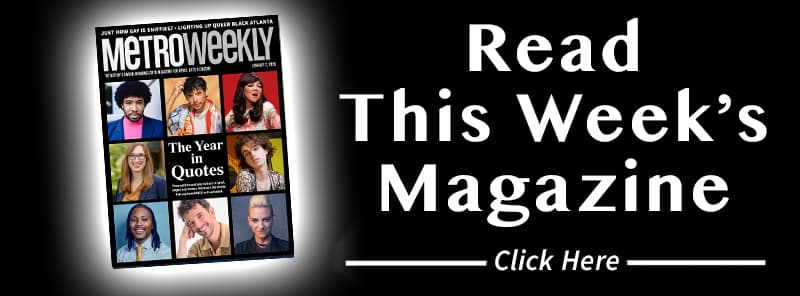
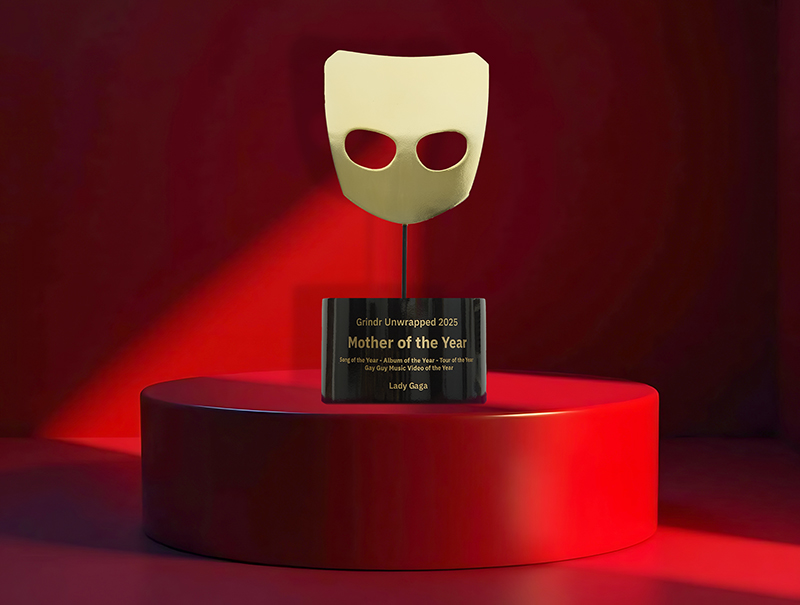

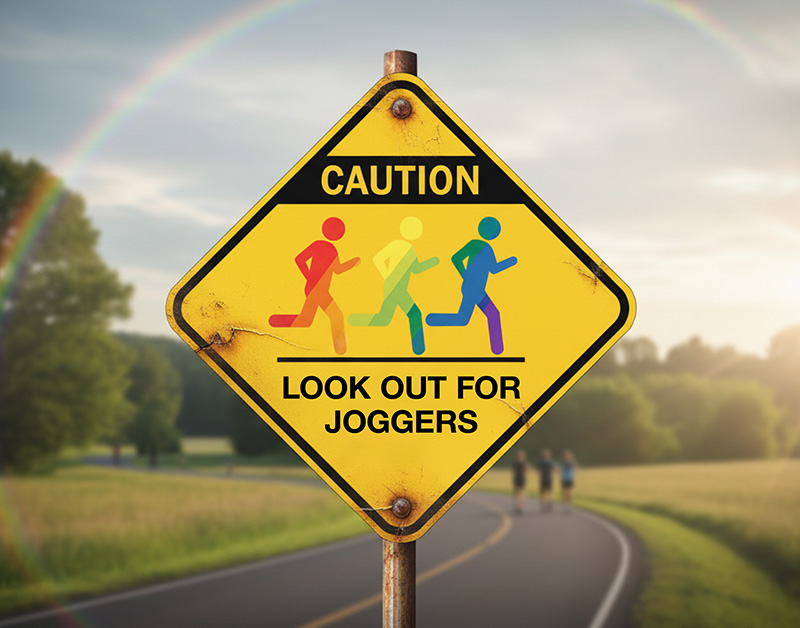
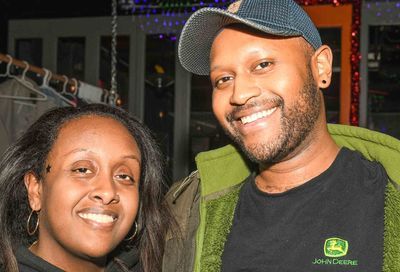
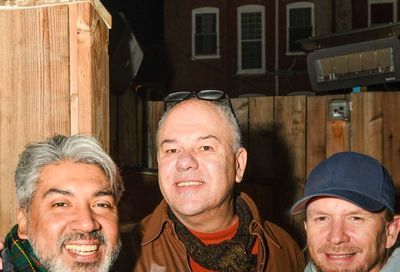

You must be logged in to post a comment.